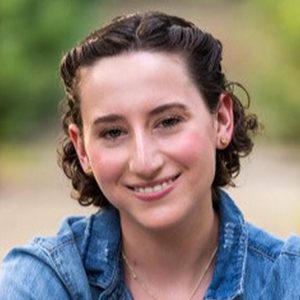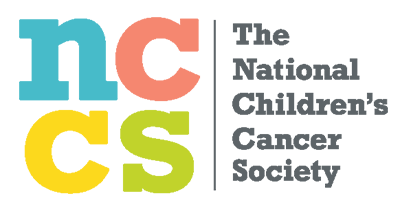Meet Meaghan Kilner

Years Awarded:
2023-2024
2022-2023
2021-2022
2020-2021
"I realized that this was what survivorship meant: working for not only your survival and quality of life, but also for the survival and quality of life for all cancer patients."
As I lay in the hospital bed, watching my oxygen numbers waver around a concerningly low level, I found the answer to the age-old question: why do bad things happen to good people?
Obviously, I’m kidding. No one could single-handedly answer that, especially when their brain is functioning on low levels of oxygen and they’re watching Mean Girls for the millionth time because they’re too lazy to go to the nurses’ desk to get a different movie. But I digress.
I was diagnosed with cancer when I was fifteen, and the four months of treatment I went through were horrible. Still, I maintained this idea that I would finish my treatment and I would pretend it had never happened. The only problem was that it had happened, and afterwards I didn’t feel normal; I felt helpless. People talked about how I was “inspiring,” but all I had done was sit by and mope as nurses pumped toxic chemo into my veins. Soon after, however, I got the opportunity to work with the Leukemia and Lymphoma Society (LLS) on their Light the Night walk, and I started to feel a little less helpless: my body was no longer a passive battlefield in my battle against cancer; I was a soldier in a much larger war against cancer that extended beyond just me.
I was feeling pretty good about myself after the walk, but five days later I found out my cancer had come back. I felt like one of those people on Wipeout who makes it across a tricky part of the course and is celebrating, only to get hit in the face with a windmill arm and knocked in the water. Still, I felt a strange sort of resolve. You wanna go, cancer? Let’s go, I thought in my most aggressive mind voice. I had just signed on to be apart of the Students of the Year team at my school, which is a fundraising campaign for LLS, and I broke the news to my teammates by saying, “At least we’ll raise more money ifwe have a bald person who actively has cancer on our team. It’ll be a great appeal to pathos!” You could have heard a pin drop in that room.
For all my outward positivity, I was still scared. Having cancer twice necessitates a confrontation of mortality. The longer I spent in the so-called “cancer community,” the more “success stories” I saw tum south as people died of relapsed cancer or effects from treatment. I was frustrated, and this frustration spurred my decision to enroll in a clinical trial. I was the first pediatric patient at my hospital in it, and there was a part of me that was tempted to go the standard route. Still, I decided to do the trial for one clear reason: whether or not the treatment was successful, I would be helping future patients. I realized that this was what survivorship meant: working for not only your survival and quality of life, but also for the survival and quality of life for all cancer patients. Spoiler alert: the treatment worked. And that Students of the Year team? We raised $155,000 in seven weeks. I found this out while I was in the hospital, and the nurses all ran into the room because the alarms went off since my heart rate and blood pressure spiked so much from excitement.
I still haven’t figured out why bad things happen to good people. I did, however, figure out that we can choose to actively work against these bad things rather than wallowing about them. There is still a part of me that wants to join the witness protection program and pretend I never had cancer, but I’m not going to. I have taken control of my survivorship narrative, and I am dedicating my life and my love of chemistry to working in medicine so that more success stories happen, and they stay success stories. There is no good reason why I lived while so many of my friends died, but since I did, I am determined to make something of my life.
